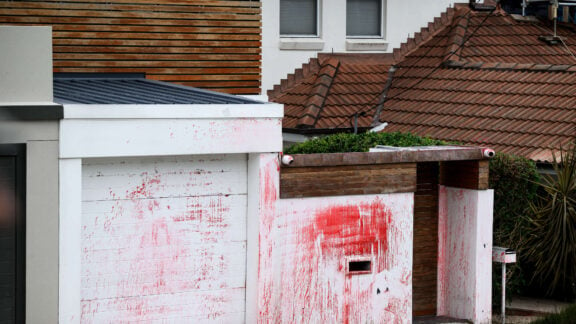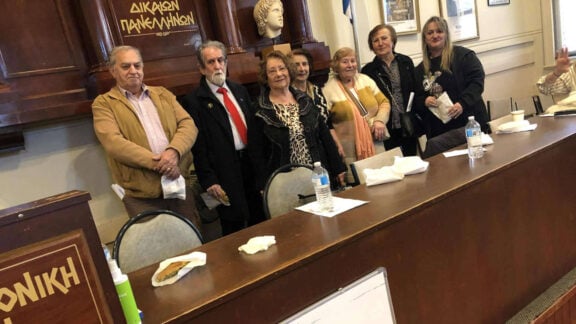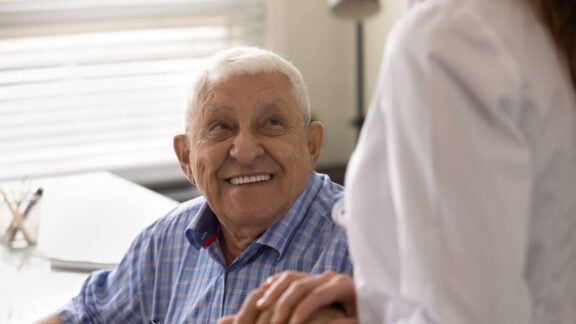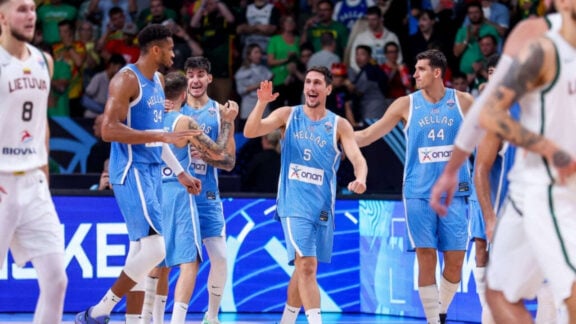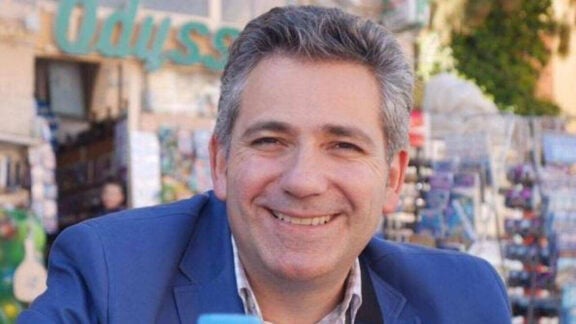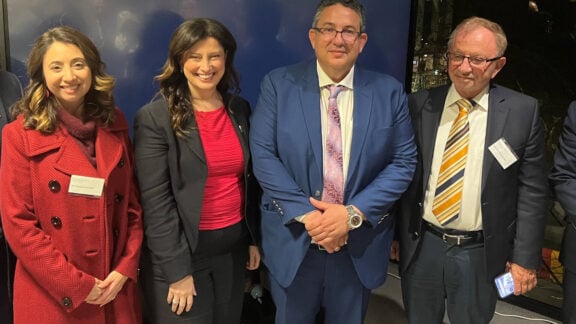The Greek Minister of Foreign Affairs, Nikos Dendias, will be raising concerns over the safety of the 150,000-strong Greek minority in the Ukraine at an emergency meeting of foreign ministers of the European Union (EU) in Paris.
“We have a special interest in the safety of the Greek community,” Mr Dendias said on Tuesday, adding that Greece supported the territorial integrity of all counties as a matter of principle and in accordance with the United Nations Charter and universal values.
Earlier on Tuesday, Greek Prime Minister Kyriakos Mitsotakis said Russia’s recognition of the unilateral declaration of independence by the self-proclaimed republics of Donetsk and Luhansk was a “blatant violation of international law, the territorial integrity of Ukraine and Minsk agreement. Also like every revisionary initiative, it undermines international stability and progress”.
The Greek PM made the statements at the start of a meeting with a Bulgarian delegation at Maximos Mansion on Tuesday.
“Greece, as a fundamental principle, respects the territorial integrity, sovereignty and independence of all nations. It therefore unequivocally condemns actions that are contrary to these values and, as a member-state of the European Union and of NATO, it is already coordinating with its partners for a common and substantive response,” Mr Mitsotakis said.
He said that he had contacted the European Commission President Ursula von der Leyen.
Mr Mitsotakis also drew attention to the large Greek population in the Ukraine as another reason for Greece’s concerns for “the protection and support of the Greek expatriates in Ukraine and the large community in Mariupol, which has a presence of 2,000 years and more in the area and for which we are working.”
Addressing concerns that the crisis would have at home, Mr Mitsotakis said the government had taken all necessary measures to ensure the supply of natural gas to Greece would remain “secure and continue without obstruction”.
Speaking to the Bulgarian delegation, Mr Mitsotakis said Greece was willing to assist its neighbour to secure adequate energy supplies.
“We are, of course, cooperating to complete the Interconnector Greece-Bulgaria (IGB) pipeline as soon as possible, which as you know is especially important for Bulgaria so that it has the option of diversifying its sources for the supply of natural gas,” Mr Mitsotakis said.
Bulgarian Deputy Prime Minister and Finance Minister Assen Vassilev, who led his country’s delegation, expressed his country’s concern over the Ukraine crisis and a potential energy crisis that could develop as a result. He also called for international law which he claimed was being “brutally violated” and needed to be respected.
“We are also willing to work with Greece and assist in the issue of supplying electrical power, to guarantee that there will be no interruptions in its supply. But also to prepare all the plans that we intend to discuss in the context of cooperation between our two countries, such as the North-South connectivity issue, which is of vital importance for Europe,” Mr Vassilev said.


